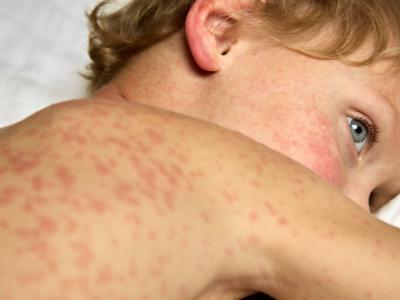As the evidence linking maternal Zika virus infections with microcephaly and other birth defects continues to grow—along with the number of countries and territories reporting cases—a shift in focus is needed away from individual cases and toward building health system capacities to care for affected patients and families, World Health Organization (WHO) Director-General Margaret Chan, MD, MPH, said today.
Martinique is the latest area to report its first suspected microcephaly case, according to an Agence France-Presse (AFP) report citing France's health minister. The development comes just days after Panama announced its first such case and as a WHO-led joint mission is investigating the first report in Cape Verde of microcephaly, which manifests as babies born with small heads and brain defects.
In other developments, the WHO marked the first suspected Zika-linked instances of Guillain-Barre syndrome (GBS) outside the outbreak area, a pair of cases from the United States, both in people who had been in Zika-hit areas. Earlier reports have already described a few Zika-linked microcephaly cases in countries outside the outbreak area, all involving women with a history of travel to affected areas.
Funding gap undermines care
Microcephaly and other reported serious neurologic complications—especially GBS, but with case reports also hinting at meningitis and myelitis—can be expected to take a toll on health systems, Chan said. Though in mid February the WHO said $56 million was needed for the response and to help countries strengthen their health systems to care for patients, member countries have donated only $3 million, with discussions under way for $4 million more.
US health officials are also facing a lukewarm response from Congress to President Obama's $1.8 billion emergency fund request, and have warned that representatives and senators are having to shift funds from other important health initiatives such as dengue and HIV.
Chan told reporters that the WHO is also facing a situation of having to borrow from other health activities. "We will not allow money to stand in the way of doing the right thing," she said, adding that resources have already been tapped to send experts, lab testing materials, and equipment to the outbreak area.
US reports pair of Zika-associated GBS cases
US health officials recently notified the WHO about the Zika-linked GBS cases, according to a statement yesterday. The WHO said they are the first Zika-linked GBS cases to be reported outside of a Zika transmission area, but it added that both cases are still under investigation to determine of they meet the Brighton Collaboration case definition for GBS.
One of the patients is an older man who got sick with a febrile illness after returning from Central America and was hospitalized in January with progressive extremity weakness and diminished reflexes. The patient's polymerase chain reaction test was positive for Zika virus. The man's condition improved with treatment, but he experienced a brain aneurysm and died before his discharge from the hospital.
The other patient is a man from Haiti who sought medical care in the United States after experiencing symptoms consistent with GBS in early January, with no earlier illness reported. A serology test was positive for past Zika infection. The man's illness improved with intravenous immunoglobulin therapy, and he was discharged from the hospital.
Though the WHO said the cases add more evidence for the link between Zika virus and GBS, more research is needed to explore a possible role for earlier dengue infection along with Zika infection in GBS development. The agency added that it's crucial to assess if increases of GBS reported in countries with local Zika transmission reflect a real change or enhanced surveillance.
CDC updates, research news
- Though Zika transmission to healthcare workers and patients from exposure to body fluids in healthcare settings hasn't been documented, the US Centers for Disease Control and Prevention (CDC) today addressed the possible threat and the importance of implementing standard precautions in labor and delivery settings. In an early Morbidity and Mortality Weekly Report (MMWR) release, the CDC said use of standard precautions is especially important in labor and delivery, because of exposure to large volumes of body fluids and the sometimes unpredictable and fast-paced nature of obstetric care.
- The CDC today added Dominica to its level 2 travel alert for pregnant women and those considering getting pregnant. The development comes just a few days after the CDC added Cuba to the list of travel destinations reporting local Zika virus spread.
- The University of Manchester yesterday announced that one of its research teams has received about $252,000 in funding to develop and test a Zika virus vaccine based on a pre-existing smallpox vaccine model. In a statement, the UK university said study results are due within 18 months and that the funding is part of a request for proposals as part of a $5.7 million rapid response initiative announced in early February from the Medical Research Council, the Wellcome Trust, and the Newton Fund.
- Health officials in Bangladesh shared more details about a retrospective Zika virus case detected from a blood sample collected in 2014, Xinhua reported today. The WHO briefly mentioned the finding in its Mar 17 Zika situation update. The patient is a man in his 60s, and his blood sample was part of a group collected in 2013 and 2014 in patients with diseases such as dengue fever. Samples from 159 of the man's close contacts were negative for the virus.
See also:
Mar 22 AFP report
Mar 21 WHO statement on US GBS cases























